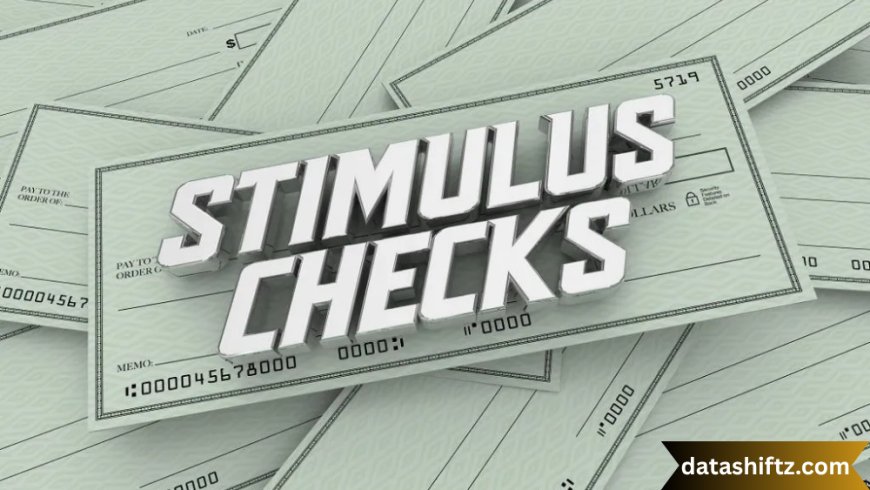Stimulus Checks: A Comprehensive Guide to Economic Relief and Public Support

Introduction
In times of economic uncertainty, governments often step in to provide financial assistance to citizens. One of the most impactful tools used in recent years has been stimulus checks—direct payments to individuals and households to support spending, stimulate the economy, and provide immediate relief. From the COVID-19 pandemic to inflationary challenges, stimulus checks have become a lifeline for millions across the United States.
This blog post explores everything you need to know about stimulus checks: their purpose, history, eligibility requirements, and the impact they have had on the economy and American households. We'll also provide a table summarizing key stimulus packages and a list of commonly asked questions to help you better understand how this critical form of aid works.
What Are Stimulus Checks?
Definition and Purpose
Stimulus checks, also known as economic impact payments, are lump-sum payments issued by the government to help citizens during times of economic downturn or crisis. These checks are typically non-taxable and are aimed at:
-
Boosting consumer spending
-
Supporting low- and middle-income families
-
Preventing economic collapse
-
Stabilizing markets and businesses
Stimulus checks are a component of larger fiscal stimulus programs, which may include expanded unemployment benefits, tax relief, and business support measures.
History of Stimulus Checks in the United States
Key Periods of Distribution
While the term became mainstream during the COVID-19 pandemic, stimulus checks have been used in the past as well. Below is a timeline of the major rounds of stimulus checks distributed by the U.S. federal government.
| Year | Name of Program | President | Amount per Individual | Key Trigger |
|---|---|---|---|---|
| 2001 | Economic Growth & Tax Relief | George W. Bush | Up to $300 | Early 2000s recession |
| 2008 | Economic Stimulus Act | George W. Bush | Up to $600 | Great Recession |
| 2020 | CARES Act | Donald Trump | Up to $1,200 | COVID-19 pandemic |
| 2021 | Consolidated Appropriations Act | Donald Trump | Up to $600 | COVID-19 second wave |
| 2021 | American Rescue Plan Act | Joe Biden | Up to $1,400 | COVID-19 continued impact |
How Stimulus Checks Work
Eligibility Criteria
Eligibility for stimulus checks varies based on the program, but most are determined by:
-
Income level (based on tax filings)
-
Filing status (single, married, head of household)
-
Number of dependents
-
Citizenship or residency status
Typical Requirements:
| Requirement | Details |
|---|---|
| Tax Filing | Must have filed a federal tax return in recent years |
| Income Thresholds | Phase-out begins for individuals earning over $75,000 and couples over $150,000 |
| Social Security | Recipients on SSI or SSDI often automatically receive payments |
| Dependent Status | Children or other dependents may qualify for additional amounts |
Economic Impact of Stimulus Checks
Boosting the Economy
Stimulus checks are designed to inject liquidity into the economy, encouraging spending on goods, services, rent, and bills. This spending helps businesses stay afloat, retains jobs, and reduces the risk of recession.
Key Benefits:
-
Increased Consumer Spending: More disposable income.
-
Reduced Poverty: Temporary financial security for low-income families.
-
Stabilized Markets: Consumer confidence can influence investor behavior.
-
Improved Public Health: Reduced need for in-person work during health crises.
Drawbacks:
-
Inflation Risk: Surge in demand can raise prices.
-
National Debt: Stimulus packages increase government spending.
-
Fraud and Misuse: Potential for improper claims or overpayments.
State-Level Stimulus and Relief Payments
In addition to federal stimulus checks, many states have introduced their own relief programs to support residents impacted by inflation and COVID-19-related job losses.
Examples of State Stimulus Programs:
| State | Payment Amount | Eligibility Requirement | Distribution Year |
|---|---|---|---|
| California | Up to $1,050 | Middle-class tax refund for filers under $250k | 2022 |
| Colorado | $750–$1,500 | Tax filers and joint returns | 2022 |
| Illinois | Up to $400 | Income-dependent rebate checks | 2022 |
| New Mexico | Up to $1,000 | Based on income and dependents | 2022 |
How to Check Your Stimulus Status
If you're unsure whether you received a stimulus check or how to track it, the IRS provides online tools for verification and updates.
How to Check Your Stimulus Payment Status
-
Visit the IRS Website: Use the "Get My Payment" tool on irs.gov.
-
Provide Personal Info: Social Security number, birth date, and address.
-
Track Delivery: Check date of issuance and payment method (direct deposit or mailed).
-
File a Recovery Rebate Credit: If you missed a payment, claim it on your tax return.
-
Watch for Scams: Always verify sources before providing personal information.
Stimulus and Taxes: What You Need to Know
Are Stimulus Checks Taxable?
No. Stimulus checks are classified as tax credits and are not considered taxable income. You do not need to repay them or declare them as earnings on your federal tax return.
Recovery Rebate Credit
If you were eligible for a check but didn’t receive it, you can claim the amount through the Recovery Rebate Credit when filing your taxes.
Future of Stimulus Checks
As of now, there is no confirmed fourth federal stimulus check, though discussions around targeted relief programs for specific groups—such as low-income earners, seniors, or students—continue in Congress.
Possible Future Scenarios:
-
Relief for rising food and housing costs
-
Expanded child tax credits
-
Emergency support during natural disasters
-
Targeted aid during future pandemics or economic shocks
Conclusion
Stimulus checks have become a vital economic lifeline during national crises, providing direct relief to families, stimulating the economy, and preventing deeper financial fallout. While not a permanent solution, they play a crucial role in short-term recovery and have proven effective in mitigating the effects of recessions and public health emergencies.
As the economy continues to evolve and challenges like inflation and global instability persist, stimulus checks remain a key tool in the government’s financial toolkit. Whether or not new checks are issued in the near future, understanding how they work helps individuals prepare for potential relief and make informed financial decisions.





























